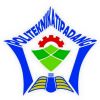Pengukuran Kesiapan Industri Minuman Teh Menjangkau Revolusi Industri 4.0 dengan Metode INDI 4.0
Abstract
Rapid technological developments greatly affect the demand for products and services. So the industry needs to improve to maximize production achievements in order to meet market needs. The development of industry 4.0 provides an opportunity to revitalize the Indonesian manufacturing sector. Moreover, the Ministry of Industry has compiled "Making Indonesia 4.0" as a strategy and roadmap to develop industry 4.0 in Indonesia. Indonesia focuses on five main sectors for the development of industry 4.0, including the food and beverage, chemical, electronics, textile and clothing, and automotive industries. This research was conducted to determine the level of readiness of the manufacturing industry, especially the food and beverage industry at PT. Perkebunan Nusantara VIII to face industry 4.0 based on organizational and technological aspects. The measurement method used is the Indonesia Industry 4.0 Readiness Index (INDI 4.0). With these results, it can help the industry know the current level of achievement and know what needs to be done to get to the level of industry 4.0. Based on online and offline assessments carried out at the level of readiness, the people and culture aspects as well as the technology aspect have the highest level of use but are at Level 2. The technological aspect has the lowest readiness at Level 1. Overall, the company's readiness is at Level 1 (readiness stage). early) almost reached moderate readiness (Level 2).
Keywords
Full Text:
PDFReferences
Utomo S., dan Setiastuti N. “Industri 4.0: Pengukuran Tingkat Kesiapan Industri Tekstil dengan Metode Singapore Smart Industry Readiness Index.” Jurnal Nasional Informatika dan Teknologi Jaringan, Volume 3(2), Maret 2019, pages 193 – 199, DOI: https://doi.org/10.30743/infotekjar.v3i2.1064
Kolberg, D., dan Zuhlke D. “Lean Automation enable by Industry 4.0 Technologies.” In International Federation of Automatic Control (IFAC) Paper online, Elsevier, 2015, pp. 1870-1875, DOI: 10.1016/j.ifacol.2015.06.359
Lu, Y. “Industry 4.0: A Survey on Technology, Applications and Open Research Issues.” Journal of Industrial Information Integration, 2017, pp. 1-41, DOI: 10.1016/j.jii.2017.04.005
Paryanto, Sulaksono S., Riznanto B., dan Rakhmawan CB. Indonesia Industry 4.0 Readiness Index (Indeks Kesiapan Indonesia untuk Bertransformasi Menuju Industri 4.0). Jakarta: Kementerian Perindustrian Republik Indonesia, 2018, pp. 1-20.
Ghobakhloo, M. “Industry 4.0, Digitization, and Opportunities for Sustainability.” Journal of Cleaner Production, Volume 19, Desember 2019, pages 1 – 40, DOI: https://doi.org/10.1016/j.jclepro.2019.119869
Kamble S.S., Gunasekaran A., Gawankar S.A. “Sustainable industry 4.0 framework: A systematic literatur review identifying the current trends and future perspectives.” Process Safety and Environmental Protection, 2018, pp. 408-425.
Ragimun WR. Strategy of Strengthening Food and Beverage Industry in Indonesia. Journal of Economics and Behavioral Studies, Volume 11(4), 26 September 2019, pages 102-110, DOI: https://doi.org/10.22610/jebs.v11i4(J).2924
Perumal T., Chui YL., Ahmadon MA., dan Yamaguchi S. "IoT Based Activity Recognition among Smart Home Residents." in 6th Global Conference on Consumer Electronics (GCCE), 2017, pp. 1-2.
Ekawati I., Alfi R., dan Nesti L. "Pengukuran Efektifitas Implementasi ERP-SAP pada Industri Teh di PTPN IV." in Conference Prosiding Sistem Informasi dan Teknologi (SISFOTEK), 2020, pp. 136 - 141
Anbumozhi V., Ramanathan K., dan Wyes H. Assessing the Readiness for Industry 4.0 and the Circular Economy. Jakarta: y Economic Research Institute for ASEAN and East Asia (ERIA), 2020, pp. 22 – 30.
Refbacks
- There are currently no refbacks.











_-_Copy10.png)

